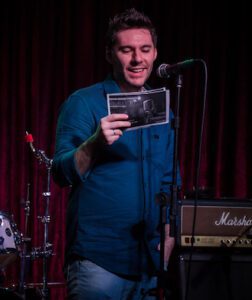If you’re a singer, maintaining your vocal health is crucial for a successful and sustainable singing journey. Let’s explore key “dos” and “don’ts” regarding diet, sleep, and overall vocal well-being to help you maximize your potential. Keep in mind that a vocal coach is not a doctor, ENT specialist, speech therapist, or nutritionist. Always consult healthcare professionals for personalized advice.
First Rule: Listen to Your Body
What works for one person might not work for another. It’s essential to pay close attention to how your body and voice respond to different routines and foods. Consider keeping a journal to track how your voice feels daily, excluding factors like illness or allergies.
Dos: How to Protect and Strengthen Your Voice
1. Stay Hydrated: Drink 2 to 3 liters of water daily. Use bottles instead of cups for more accurate measurement. Proper hydration helps your body produce the mucus needed to lubricate the vocal cords, although it takes about two hours for water intake to impact vocal health. Small sips during singing can help clear mucus.
2. Eat a Balanced Diet: Prioritize fruits and vegetables for a well-rounded diet. On performance days, increase your intake of healthy carbs to boost energy.
3. Eat an Apple Daily: Apples are naturally astringent and can neutralize stomach acid. The skin also helps clear throat mucus.
4. Prioritize Sleep: Aim for 8 hours of high-quality sleep. Pay attention to your pillow, mattress, and room temperature to ensure optimal rest.
5. Steam Inhalation: Inhale steam 2 to 3 times per week, especially if you live in a polluted area or spend time in air-conditioned environments. Hydration from inhalation complements water intake.
6. Exercise Regularly: Incorporate aerobic exercises into your routine to improve breath control and overall stamina.
7. Practice Vocal Techniques Consistently: Maintain a regular vocal training schedule, but avoid intense practice on performance days.
8. Address Digestive Issues: Conditions like gastritis can harm your vocal tract. Seek medical treatment if needed.
9. Manage Emotional Health: Emotional well-being affects your vocal performance. Stress and anxiety can alter your body’s chemistry and impact your voice.
10. Respect Your Vocal Limits: Take at least one vocal rest day per week. Limit performances to 90 minutes and always cool down after singing.
Don’ts: Habits to Avoid for Vocal Health
1. Avoid Heavy Meals Before Singing: Don’t eat a large meal less than an hour before performing. Digestion can interfere with breath support and vocal performance.
2. Limit Caffeine: Coffee, tea, and other caffeinated beverages can dehydrate the body, reducing vocal cord lubrication.
3. Avoid Dairy Products: Milk, yogurt, cheese, and chocolate can increase mucus production, leading to throat clearing and vocal strain.
4. Avoid Extreme Temperature Drinks: Steer clear of very hot or cold drinks, as thermal shock can stress your vocal cords.
5. Skip Alcohol: Alcohol dehydrates the body similarly to caffeine, diminishing vocal hydration.
6. Manage Stress: Stress negatively affects your vocal quality. Avoid high-stress situations before performances.
7. Avoid Intense Workouts Before Singing: Don’t do heavy weight training within six hours of a performance. Muscle tension can interfere with vocal control.
8. Don’t Sing Without a Proper Warm-Up: Ensure your voice is fully warmed up to avoid strain or injury.
9. Stay Away from Sick Individuals: Protect your voice by avoiding close contact with people showing cold or flu symptoms.
10. Avoid Smoky Environments: Secondhand smoke is harmful to your vocal cords, even if you don’t smoke.
These 20 tips—10 to follow and 10 to avoid—are vital for any singer, whether professional or amateur. By prioritizing vocal health, you’ll ensure a long, thriving singing career while maintaining overall well-being.




